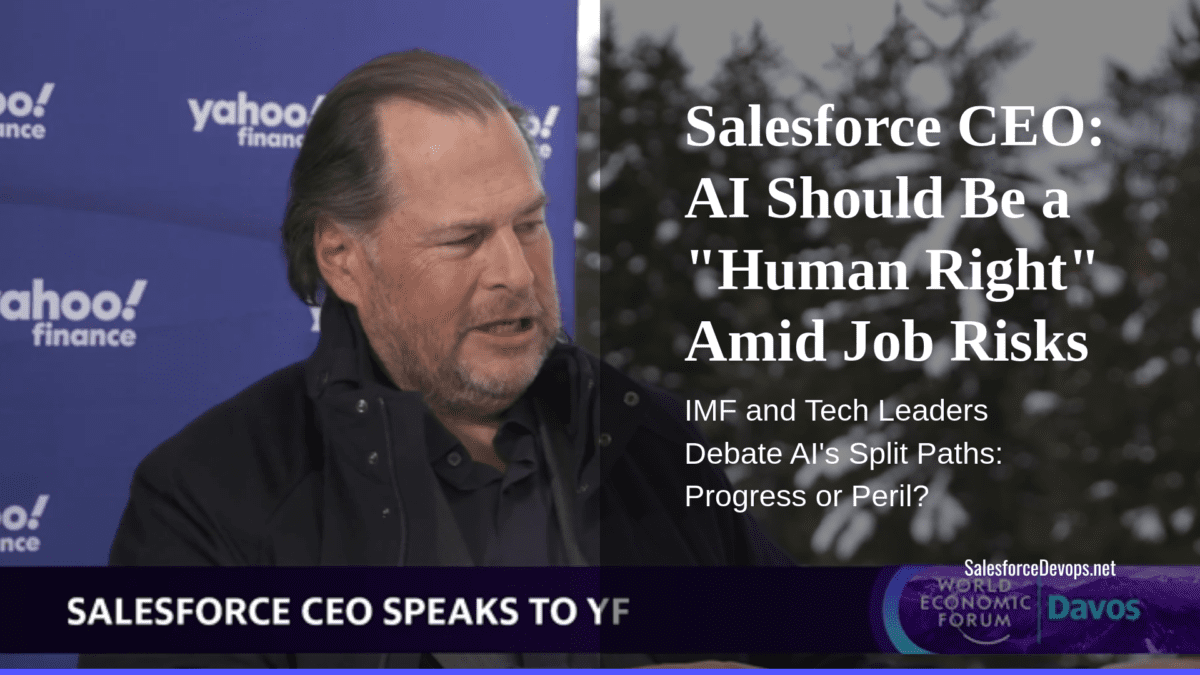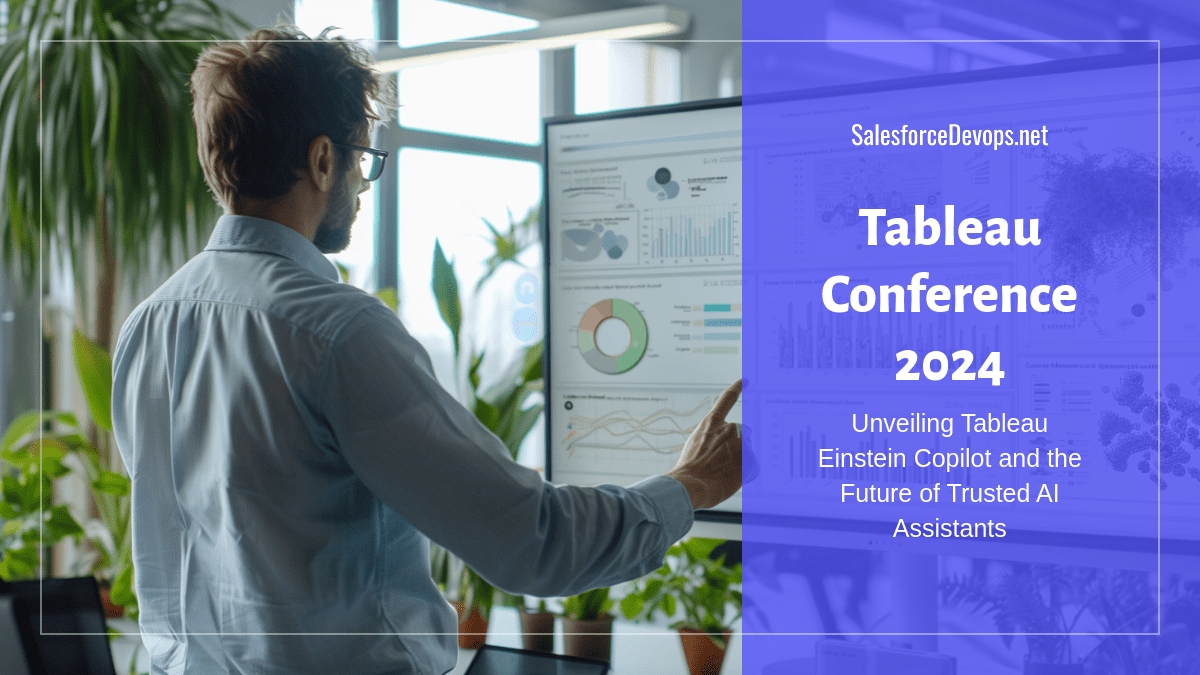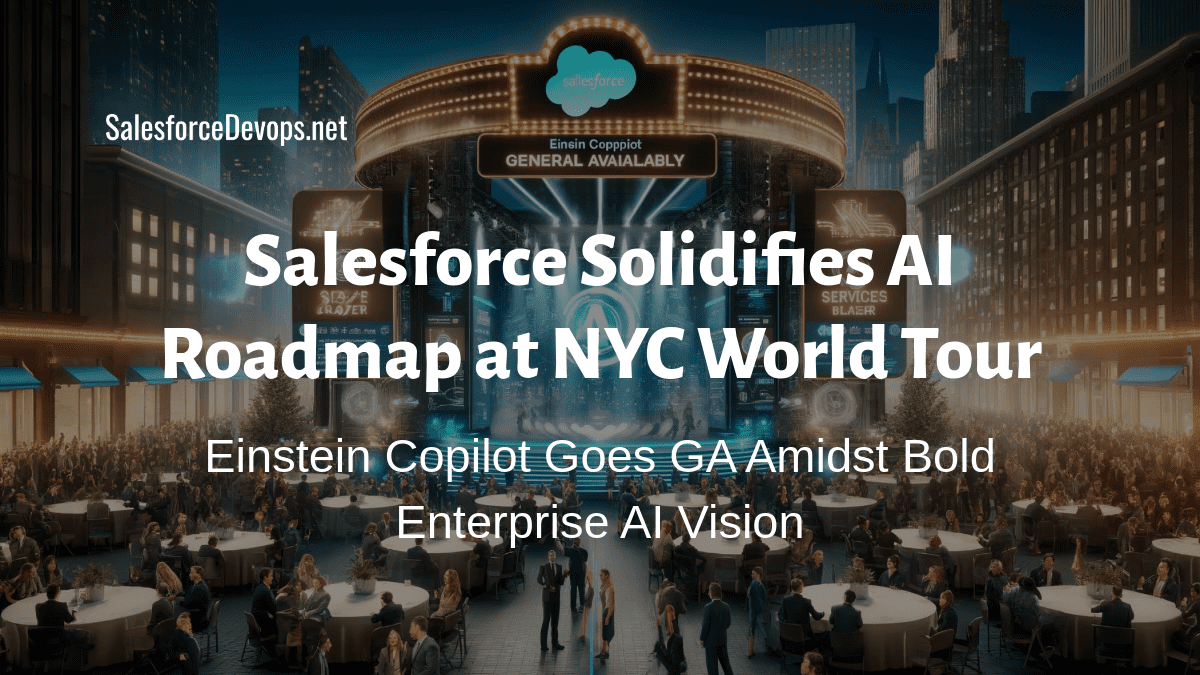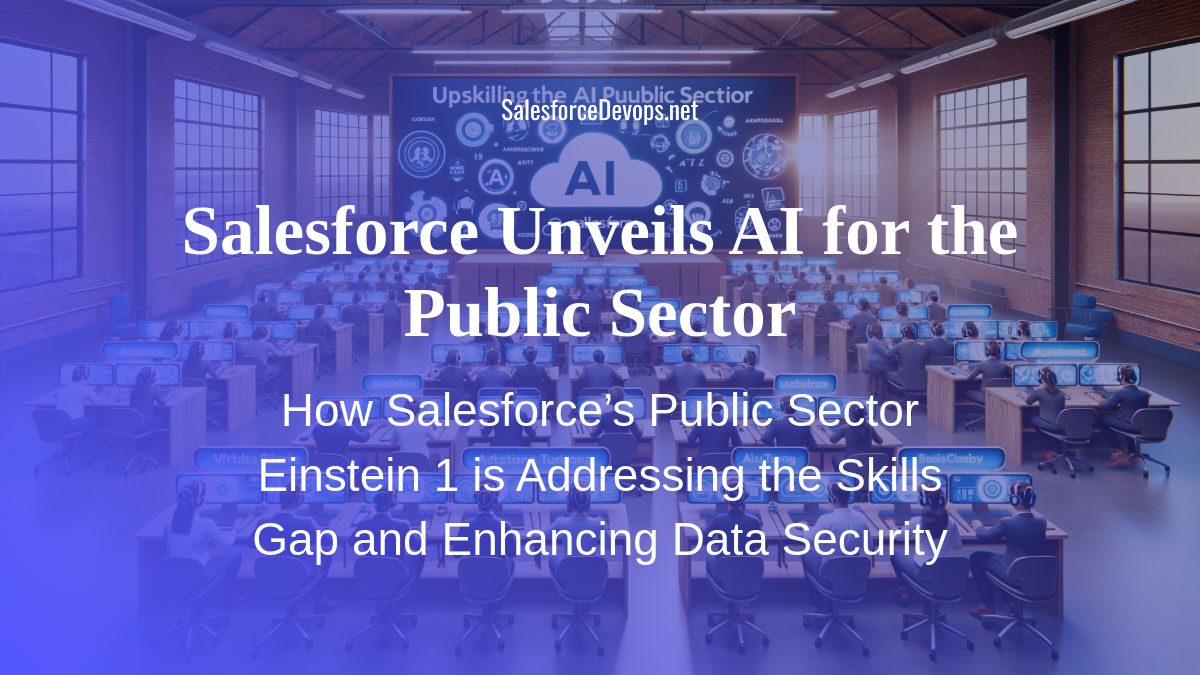Salesforce CEO: AI Should Be a “Human Right” Amid Job Risks
As over 40% of jobs face potential disruption from artificial intelligence adoption according to a new IMF study, Salesforce CEO Marc Benioff, in a Yahoo Finance video, argues equal access to AI should be viewed as a basic human right. However, the tech visionary also warns the technology could exacerbate inequality if governance and worker protections fail to keep pace.
Speaking at the World Economic Forum’s annual gathering of global leaders in Davos, Benioff reflected on AI’s promise to transform sectors from health care to education while boosting productivity. “AI can really make people better,” he said, citing Salesforce customer Gucci’s 30% revenue lift after integrating AI in its contact centers.
However, Benioff cautioned leaders, “AI has got a lot of problems still – it lies, it hallucinates, it’s built on stolen data.” He called for coordinated regulatory oversight to ensure AI “stays on the rails” given risks such as embedded biases and job automation. “We need the governance around AI…this is a really critical moment.”
Table of contents
Over 40% of Jobs Exposed Globally Per IMF
Benioff’s remarks come as policymakers grapple with AI’s wide-ranging societal impacts. An International Monetary Fund analysis estimates that over 40% of current global employment shows high potential for exposure to AI technologies which can replicate select human capabilities. That figure approaches 60% for advanced economies like the US and UK with heavier concentration of knowledge-work roles.
Unlike prior waves of automation concentrated in rote tasks, the IMF cautions AI’s advances now endanger higher-skilled jobs as well previously considered immune. However, the Fund also estimates half of exposed roles may see productivity gains from AI assisting rather than supplanting workers. These high “complementarity” jobs like computer scientists, managers and healthcare practitioners could capture an outsized share of economic benefits.
Inequality Risks Within and Across Countries
Even as AI holds the promise of boosting incomes overall, the IMF projections point to likely unequal impacts both within and between countries. Workers already earning higher wages appear better positioned to capitalize on AI complementarities. Whereas lower paid individuals in transportation, production, maintenance, and administrative occupations face above-average automation threats.
Likewise, advanced regions with greater digital fluency and infrastructure may harness innovations faster. While emerging markets risk falling behind without significant investments preparing workforces for an AI-enhanced economy.
To mitigate inequality risks, policy experts emphasize retraining initiatives, strengthened safety nets and facilitating labor mobility from declining to growing occupations. Alongside oversight protecting consumers from biases and ensuring tech luminaries don’t monopolize ownership of increasingly vital AI systems.
AI Optimism and Caution
While optimism persists in AI’s potential to catalyze leaps in medicine, sustainability, and economic progress, ensuring equitable access and oversight pose growing challenges.
Balancing benefits and risks hinges on policy choices and responsible development. But special interests and hype risk clouding judgment on appropriately governing this rapidly evolving technology.
Heeding warnings from experts like Benioff and the IMF, world leaders have crucial decisions ahead regarding guardrails to prevent embedded biases from becoming barriers to opportunity. And thoughtfully planning worker transitions where needed to harness innovations for the betterment of all.






